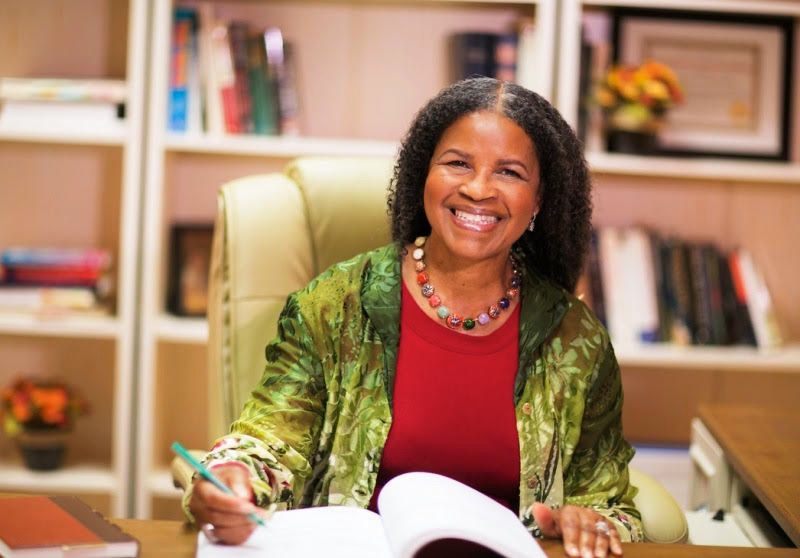The current pandemic presents nothing new to African Americans in terms of disproportionately impacting our communities in every dimension of life. The fact is, as has been noted in any number of commentaries and references on social media in the wake of the Covid-19 virus, we have been experiencing a pandemic since our first days on the shores of this country-a pandemic of racism. Emancipation provided a lowering of the viral load, as have the legislative outcomes of the Civil Rights and Black Power Movements, but the stark reality is that it’s a virus that continues to impact the consciousness of many Americans and continues to mutate with varying presentations requiring vigilance and a consistent intervention of social outcry and activism.
Aversive racism is a powerful change in the virus as it blinds those whites who declare themselves anti-racist and even present in most cases as if this is their reality. This is the population of white Americans who sympathize with past victims of racial injustice, support civil rights legislation and most often are generally liberal in their politics, however, beneath the surface and often based on the real separation that continues to define our communities, have negative and often stereotypical feelings about AAs. Given certain situations, these feelings surface.
According to one researcher “Aversive racism represents a particular type of ambivalence in which the conflict is between feeling and beliefs associated with a sincerely egalitarian value system and unacknowledged negative, feelings and beliefs about Blacks…sympathy without additional feelings of friendship or respect does not, in our view, represent a truly positive racial attitude.” (Samuel Gaertner and John Devidio).
I can give so many concrete examples but will settle with one from my own high school experience. I was salutatorian of a large, mostly white high school. When called into the guidance office for pre-graduation counseling, I was told by the counselor, who was white and also my Latin teacher, that as smart as I was, I would make an excellent secretary. Her white mentality and imagination of who black people are, could not envision any other path for me. Fortunately, my father, a college graduate and more importantly an activist, had already processed my application and acceptance to UCLA. His vigilance and activism worked for me on an individual level but what of all those misdirected and undervalued youth who, because of racism-overt or aversive- are not rescued, as I was.
While this may seem fairly benign, the reality is this perception of Black capability underscores the thinking of too many of the teachers, counselors and principals who create the overall school environment prevalent K through higher education. Consider that colleges who perceive all Black students as Affirmative Action (a program earned by African-Americans based on hundreds of years of discrimination by institutions of higher education}do not consider that W.E.B DuBois, son of enslaved Africans, earned a degree from Harvard, as have a score of other African-Americans pre-Affirmative Action. And yet, society in general continues to act in amazement when confronted by Black excellence. Talk to the majority, if not almost all Blacks who have achieved in some area of life, and they can recount multiple confrontations with racism denying their intelligence.
Consider what underlies the surprise reflected when too many whites express surprise, with what they intend as a compliment, how articulate President Obama is notwithstanding that he is a Harvard educated attorney and duly elected president of the most wealthy and powerful country in the world. So clearly, emphatically, and historically we are only protected from the virus of racism as is the poorest amongst us.
We must not only remain vigilant but also proactive in continuing our struggle against it. An analogy that I used effectively in my classroom was of a dam, a structure constructed to control the power and energy of water. Built into the dam are stress points to relieves stress so the dam is not rendered ineffective in controlling the power of the water.
Racism is like the dam, holding back the power and energy of Black people, except that released through “stress points” like Affirmative Action. Our challenge, no responsibility, as Blacks who have made it through the stress points, is to return to that power source the dam holds back, agitate the potential power behind it so it is no longer able to hold it back. Life will be changed by the activism now playing out in our country. Dialogue is confronting the reality and danger of aversive or unconscious racism.
Multiracial crowds are storming this country’s streets, agitating the waters and weakening the dam. The nexus of two pandemics, Covid-19 and racism, has created the perfect storm to fundamentally damage the dam that has continued to remain strong in today’s world. The arrogance that comes from the oft repeated statement that America is the most powerful and wealthy nation in the world, no longer has the power over our collective consciousness as a nation.
Something as unthinkable as an inability to meet the needs of our medical community for simple products that could have significantly changed the impact of Covid-19, coupled with our unwillingness to provide significant support to working class, marginalized communities across the nation, has forced many Americans to reassess just what wealth and power and privilege means if it is not harnessed for the good of all.
Dr. Barbara Rhodes served as Professor Emeritus, Former Chairman of the Pan African Studies Department at California State University, Northridge. Director of JW Anthony Youth and Family Outreach Los Angeles, CA and Las Vegas, NV.
www.jwayouthandfamilyoutreach.org








